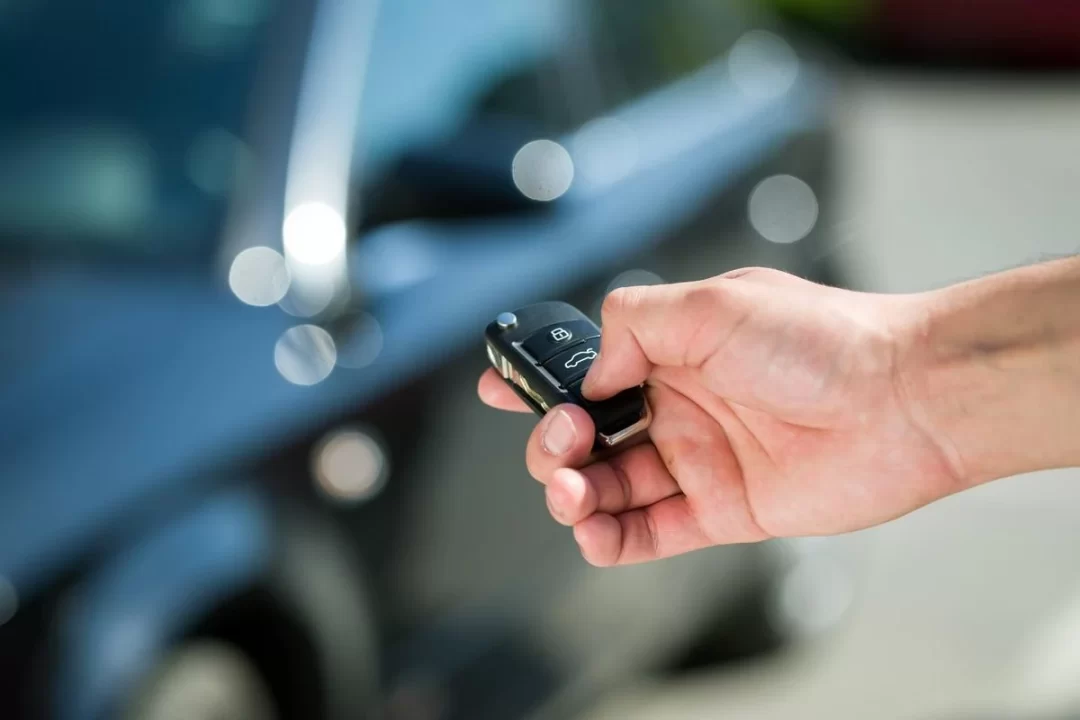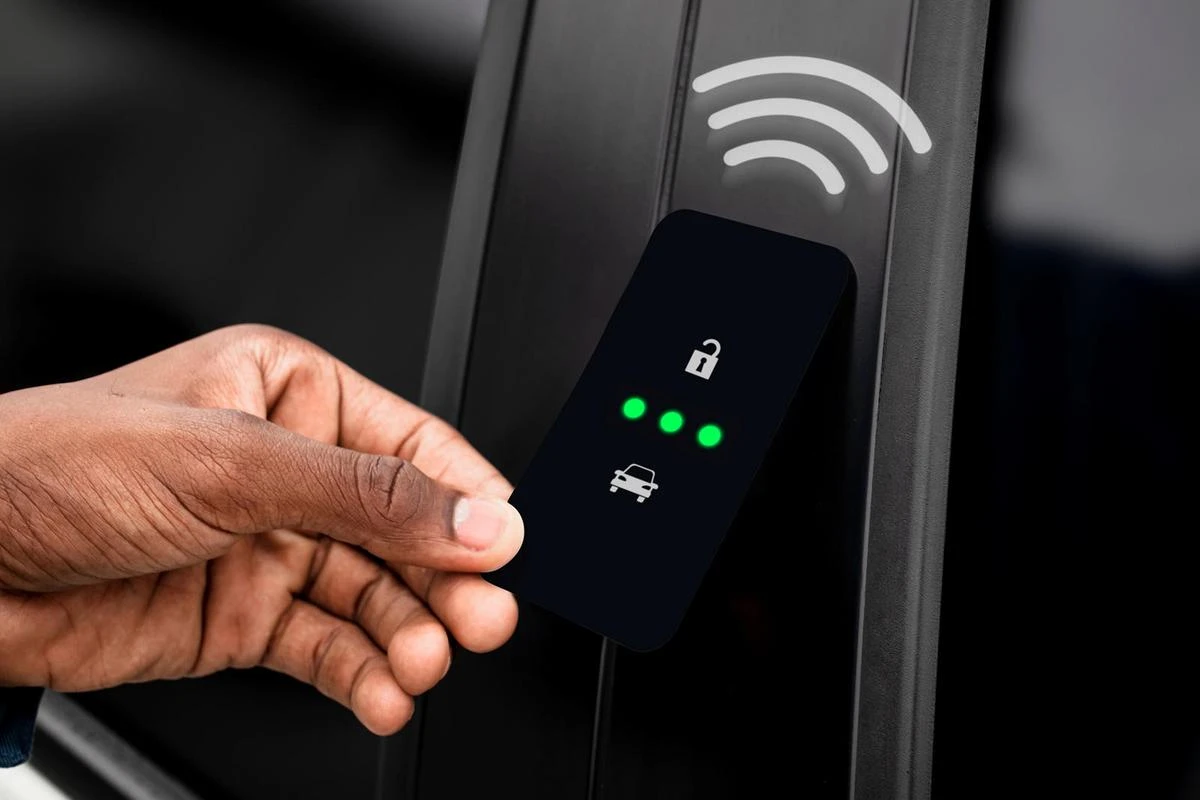Do Car Alarms Work? – How To Prevent Car Theft
Do car alarms work? Car alarms have become an essential component of vehicle security in recent times. They are designed to alert the vehicle owner and deter potential car thieves from stealing or vandalizing their vehicle.
However, there has been much debate about their effectiveness in preventing car thefts. In this article, we will provide an in-depth analysis of the factors that affect the effectiveness of car alarms and provide alternative options for securing your vehicle.

Car Alarm Systems and Car Theft
Car alarm systems have been around for several decades, and they are designed to alert the car owner and nearby individuals when someone tries to break into the vehicle.
Typically, car alarm systems are equipped with sensors that detect vibrations, movements, and changes in the car’s position. Once triggered, the car alarm will sound loud, with the hope of deterring the thief from continuing their efforts.
Car Alarm Statistics
How effective are car alarm systems in preventing car theft? Let’s look at the stats:
1. Vehicles with alarms are up to 70% less likely to be stolen than those without alarms. [National Highway Traffic Safety Administration (NHTSA)]
2. 56.6% of stolen vehicles in 2020 did not have an alarm installed. [National Insurance Crime Bureau (NICB)]
3. The average response time for car alarms is 45 seconds. [Consumer Reports]
4. Car alarms can reduce the risk of vehicle theft by 60%. [GEICO]
5. 38.6% of stolen vehicles in 2020 did not have an immobilizer installed. [NICB]
6. The cost of a car alarm system can range from $50 to $500 or more, depending on the features and level of protection. [CarsDirect]
7. Some advanced car alarm systems can send alerts to your smartphone if your car is being tampered with or stolen. [CNET]
These stats highlight the effectiveness and importance of car alarm systems as a security measure for your vehicle.
How Car Alarms Work
Do Car Alarms Work? A car alarm system consists of several components that work together to detect and alert the owner of any unauthorized entry into the vehicle. These components include the sensors, control unit, siren, and remote control.
The control unit receives signals from the sensors, which are strategically placed around the vehicle, and activates the siren when triggered.
There are different types of car alarms available in the market, and they operate in various ways. Active alarms require the driver to activate them manually, while passive alarms are activated automatically when the driver locks the vehicle.
Two-way alarms allow the driver to receive alerts on their remote control when the alarm is triggered. Shock sensors detect any impact or vibration on the vehicle, while tilt sensors detect any changes in the car’s angle.
Car alarms are triggered when someone tries to open the doors, trunk, or hood of the car without using the key. They can also be triggered by a sudden impact or movement of the car.
False alarms can be a problem, and they are usually caused by environmental factors such as loud noises or vibrations. Proper installation and maintenance of the car alarm system can help reduce the occurrence of false alarms.
Effectiveness of Car Alarms
Car theft is a significant concern for vehicle owners, and car alarms have been one of the measures taken to prevent it.
According to the National Insurance Crime Bureau, in the United States, a car is stolen every 40 seconds, and only about half of them are ever recovered.
Car alarms are marketed as effective deterrents against car thefts, but their effectiveness has been debated.
Some argue that car alarms are ineffective and merely annoy people with their false alarms, while others believe that they are essential for car security.
Despite the controversy surrounding their effectiveness, car alarms have been known to deter potential thieves in some cases.
According to a study conducted by the Highway Loss Data Institute, cars with factory-installed alarms are 25% less likely to be stolen than those without them.
In another report by NICB in 2020, 56.6% of stolen vehicles did not have an alarm, while only 43.4% of stolen vehicles had an alarm.
This suggests that having an alarm can decrease the likelihood of your vehicle being stolen, although it is not a guarantee of protection.
Factors Affecting the Effectiveness of Car Alarms

Do Car Alarms Work? There are several factors that affect the effectiveness of car alarms in preventing theft. One of the most significant factors is the quality of the alarm system itself.
Higher quality systems are more likely to be effective in deterring thefts and alerting the owner and nearby individuals of a potential break-in.
Another crucial factor is the installation of the alarm system. Proper installation by a professional can ensure that the system is set up correctly and that all components are functioning correctly.
The location of the alarm components, such as the sensors and control unit, can also affect the system’s effectiveness. Inaccessible locations can make it challenging for potential thieves to disable the system.
Finally, the sensitivity of the alarm system is a critical factor to consider. Overly sensitive systems may result in frequent false alarms, which can cause the owner and nearby individuals to ignore the alarm in the event of an actual break-in.
However, if the system is not sensitive enough, it may not be effective in deterring thefts.
Alternatives to Car Alarms
Do Car Alarms work? While car alarm systems may not be the most effective anti-theft measure, there are other devices that car owners can install to deter car theft. Some of the top car anti-theft devices include:
1. GPS Tracking Devices
First, these devices use GPS technology to track the location of your vehicle in real time. This can be helpful in the event of theft, as you can quickly locate and recover your vehicle.
2. Immobilization Systems
Also, these systems prevent the engine from starting unless a specific key or code is used. This makes it difficult for thieves to steal your vehicle, as they cannot start the engine without the proper credentials.
3. Steering Wheel Locks
These locks physically attach to your steering wheel, making it difficult for someone to steer the vehicle if they do manage to break in.
4. Hood Locks
Similar to steering wheel locks, hood locks physically secure your vehicle’s hood in place, making it difficult for someone to access the engine and steal parts.
5. Vehicle Security Services
These services provide additional security measures, such as 24/7 monitoring, GPS tracking, and automatic theft notification to authorities.
6. Window Etching
This involves etching a unique identification number onto the glass of your vehicle, making it less attractive to thieves who may be looking to sell stolen vehicles.
7. VIN Etching
Similar to window etching, VIN etching involves etching your vehicle’s unique VIN (Vehicle Identification Number) onto the windows or other parts of the car, making it more difficult to sell stolen parts.
8. Glass Break Sensors
These sensors can detect when a vehicle’s window has been broken and trigger an alarm.
9. Electronic Security Systems
These systems often include a combination of alarms, immobilizers, and GPS tracking technology.
10. Remote Engine Start with Keyless Entry
This feature allows you to start your car remotely and lock or unlock the doors from a distance, making it more convenient and secure.
11. Vehicle Tracking Apps
These apps allow you to monitor the location and status of your vehicle in real time.
12. Personal Safety Devices
These devices can include pepper spray, personal alarms, or other self-defense tools to protect yourself in the event of a break-in or carjacking.
By considering these alternatives, you can choose the best security option for your vehicle and budget.
Steps You Can Take to Prevent Vehicle Theft
Apart from installing anti-theft devices, there are also several steps that car owners can take to prevent vehicle theft. These steps include
1. Parking in well-lit areas: Park your car in areas that are well-lit and avoid parking in secluded areas where thieves can easily break in.
2. Locking your car: Always lock your car, even if you’re only leaving it for a short period.
3. Keeping valuables out of sight: Don’t leave any valuable items in your car, especially in plain sight. Thieves may be tempted to break in if they see something valuable.
4. Being vigilant: Always be aware of your surroundings, especially when approaching or leaving your vehicle.
Conclusion
In conclusion, car alarms can be effective in preventing car thefts, but their effectiveness depends on various factors. Proper installation and maintenance can help reduce the occurrence of false alarms and ensure that the system is functioning correctly.
However, car alarms should not be relied on entirely for car security. And other alternatives should be considered, depending on individual needs and circumstances.
Ultimately, the best way to prevent car theft is to take precautions, such as parking in well-lit areas and keeping valuable items out of sight.
Frequently Asked Questions
Here are some related frequently asked questions;
1. How do thieves break into cars with alarms?
Thieves can break into cars with alarms using various methods such as smashing windows, breaking door locks, or hacking into the car’s electronic systems.
Once inside, they may be able to disable the alarm or disconnect the battery to stop the alarm from sounding.
2. How do you scare burglars away from your car?
One way to scare burglars away from your car is by installing a visible anti-theft device such as a steering wheel lock or a GPS tracking device.
Additionally, parking in well-lit areas and avoiding leaving valuables in your car can also deter burglars.
3. Why wrap your car keys in foil?
Wrapping your car keys in foil can help prevent thieves from using electronic devices to amplify the key’s signal and unlock your car. Also, this is known as a “relay attack” and can be prevented by blocking the key’s signal using foil.
4. How are thieves stealing cars without keys?
Thieves are stealing cars without keys by using various methods such as hacking into the car’s electronic systems, using a “relay attack” to amplify the key’s signal, or simply breaking into the car and hotwiring it.
5. How do thieves steal cars without keyless entry?
Thieves can steal cars without keyless entry by using traditional methods such as breaking into the car and hotwiring it, or by using tools to pick the car’s locks or manipulate the ignition.






